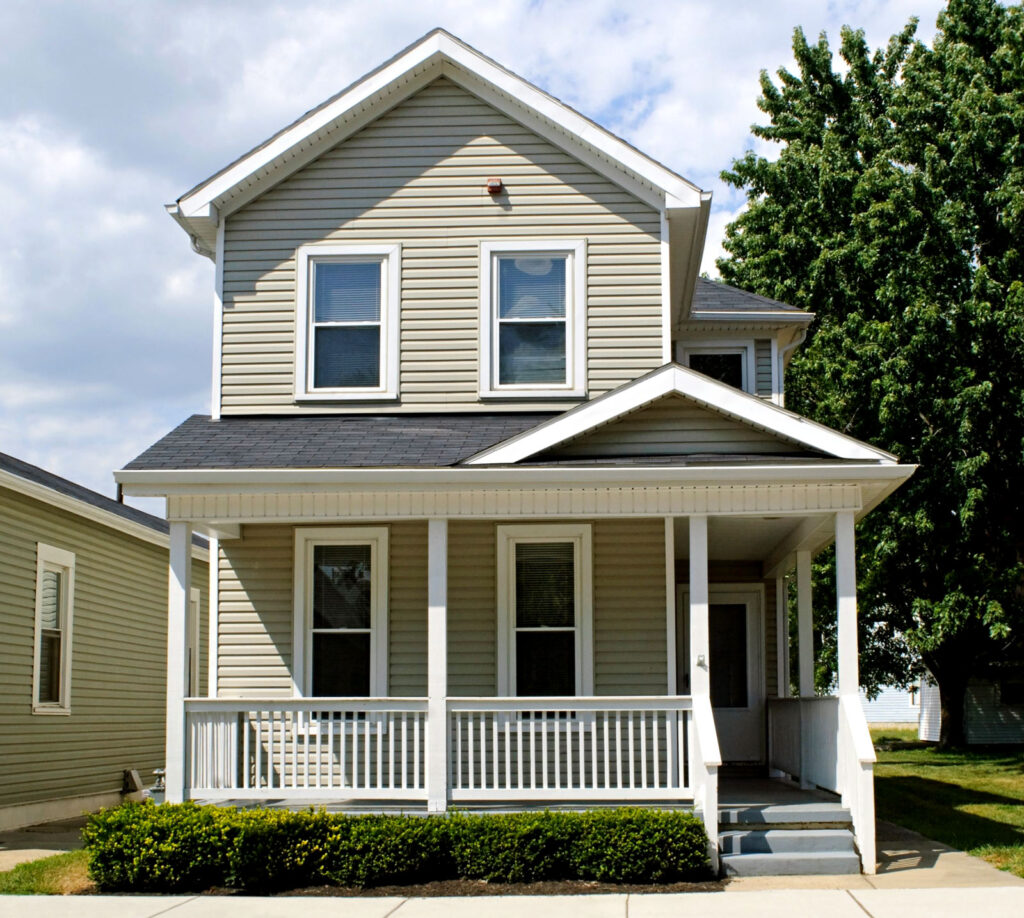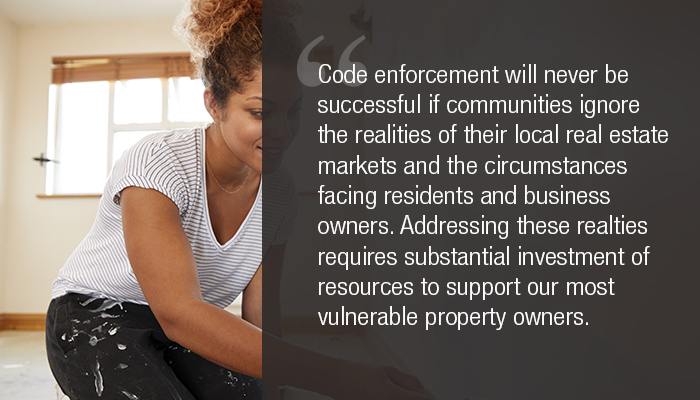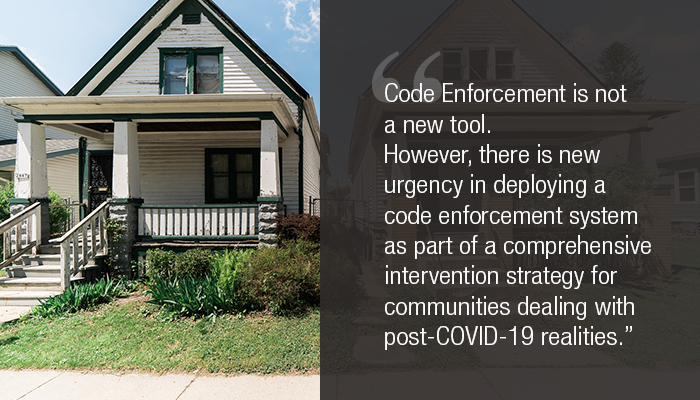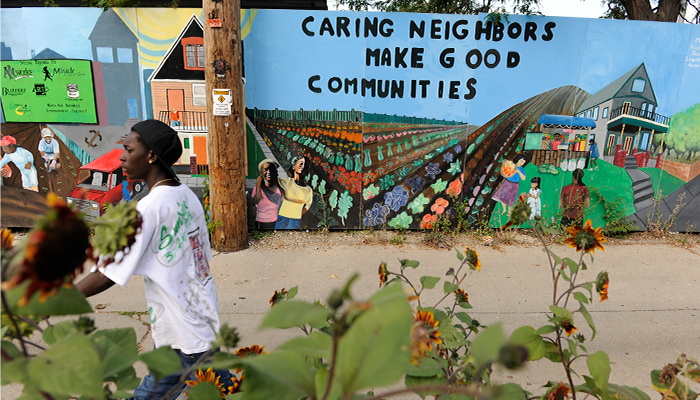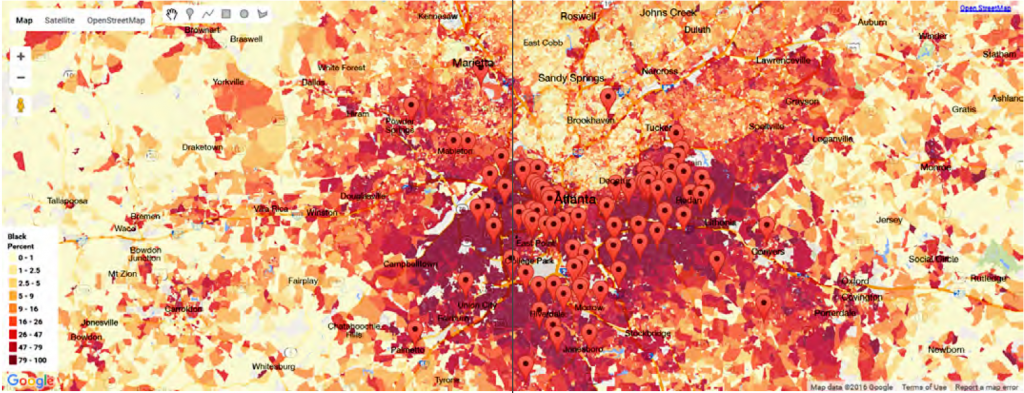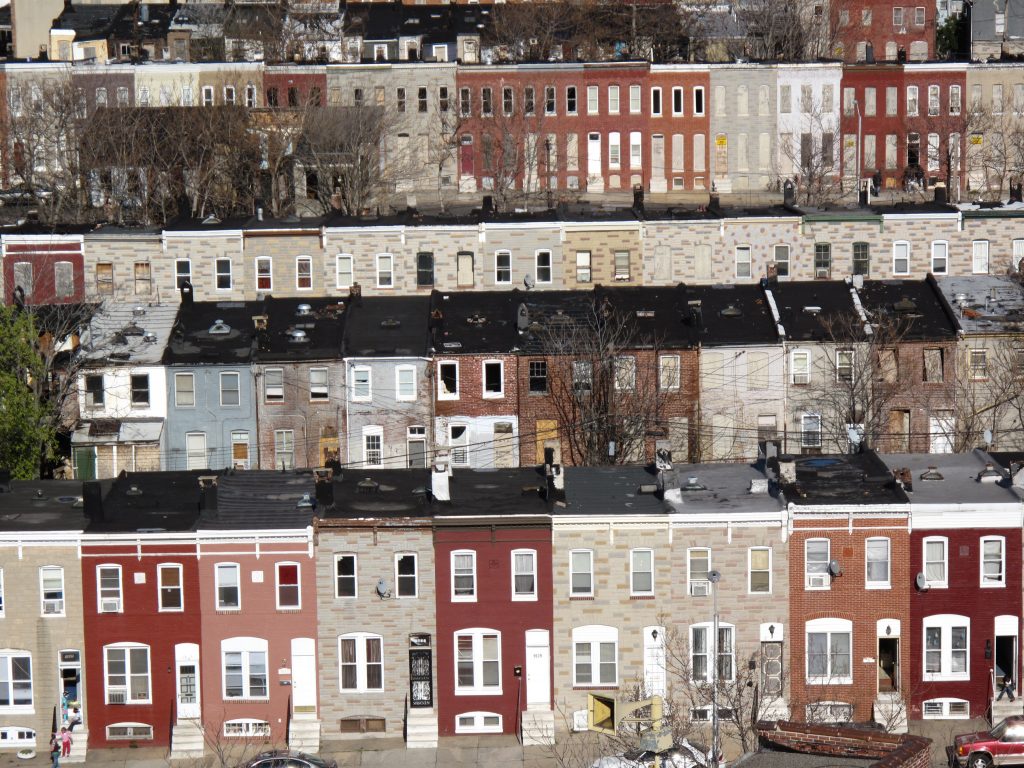Blog
Code Enforcement System
Blight is a shorthand term many people use to refer to properties they perceive as problematic in some way.
Read More »Vacant, abandoned, and deteriorated (VAD) properties—referred to by some as “blighted properties”—pose significant costs to public health, property values, local taxpayers, and more.
Read More »Code enforcement from A to Z: when it works, when it doesn’t, and how local governments can make code enforcement systems more fair for all.
Read More »The City of Detroit’s innovative Make it Home program harnesses the power of the traditionally harmful property tax foreclosure process and uses it to increase affordable homeownership, improve housing conditions, and stabilize neighborhoods.
Read More »With technical assistance support from Community Progress, Louisville is reforming their housing and building code enforcement with equity in mind.
Read More »This is an excerpt of Chapter 8 of Tackling Vacancy and Abandonment: Strategies and Impacts After the Great Recession, jointly produced by the Center for Community Progress, the Federal Reserve Bank of Atlanta, and the Federal Reserve Bank of Cleveland. It has been lightly edited and condensed for the web….
Read More »This is an excerpt of Chapter 7 of Tackling Vacancy and Abandonment: Strategies and Impacts After the Great Recession, jointly produced by the Center for Community Progress, the Federal Reserve Bank of Atlanta, and the Federal Reserve Bank of Cleveland. It has been lightly edited and condensed for the web….
Read More »This is an excerpt of Chapter 6 of Tackling Vacancy and Abandonment: Strategies and Impacts After the Great Recession, jointly produced by the Center for Community Progress, the Federal Reserve Bank of Atlanta, and the Federal Reserve Bank of Cleveland. It has been lightly edited and condensed for the web. In…
Read More »Cities across the United States are receiving an unprecedented infusion of resources from the American Rescue Plan Act State and Local Fiscal Recovery Funds (ARPA SLFRF). Thanks to direct advocacy from Community Progress and our partners, the U.S. Treasury explicitly said communities can use ARPA SLFRF funds to address vacancy,…
Read More »States, Tribes, counties, and municipalities around the country have been hard at work determining how to use their allocations from the American Rescue Plan Act’s $350 billion State and Local Fiscal Recovery Fund – which we often clumsily abbreviate as the ARPA SLFRF. Every unit of government should have already received at least the first…
Read More »

